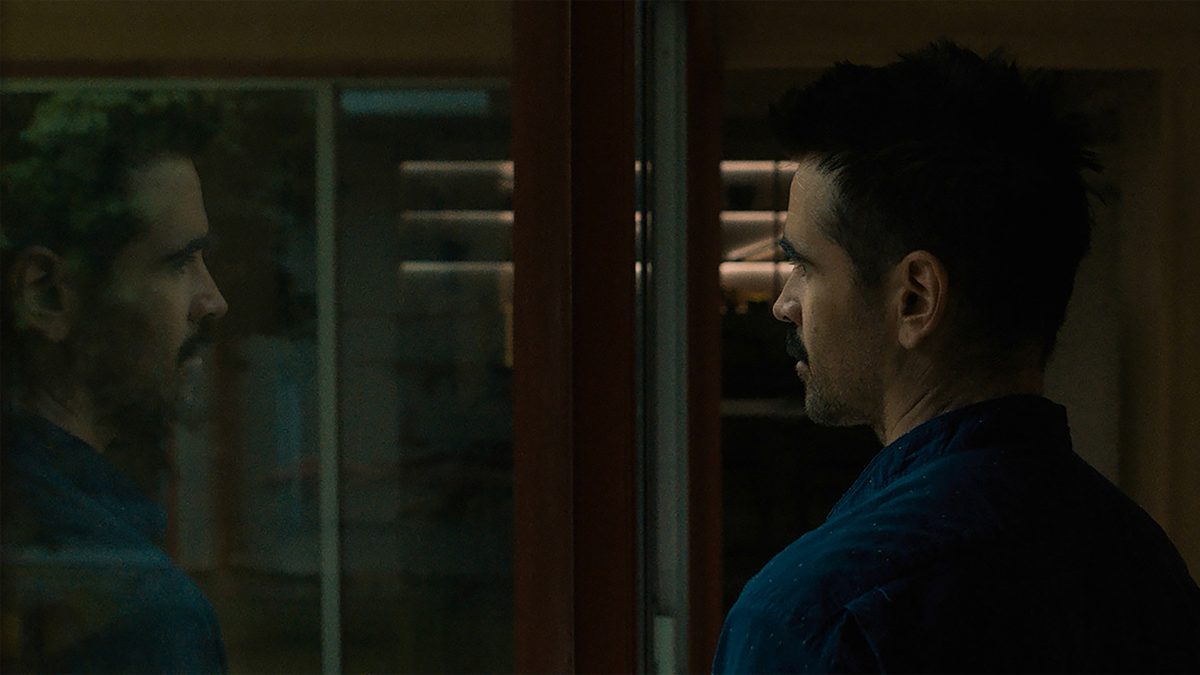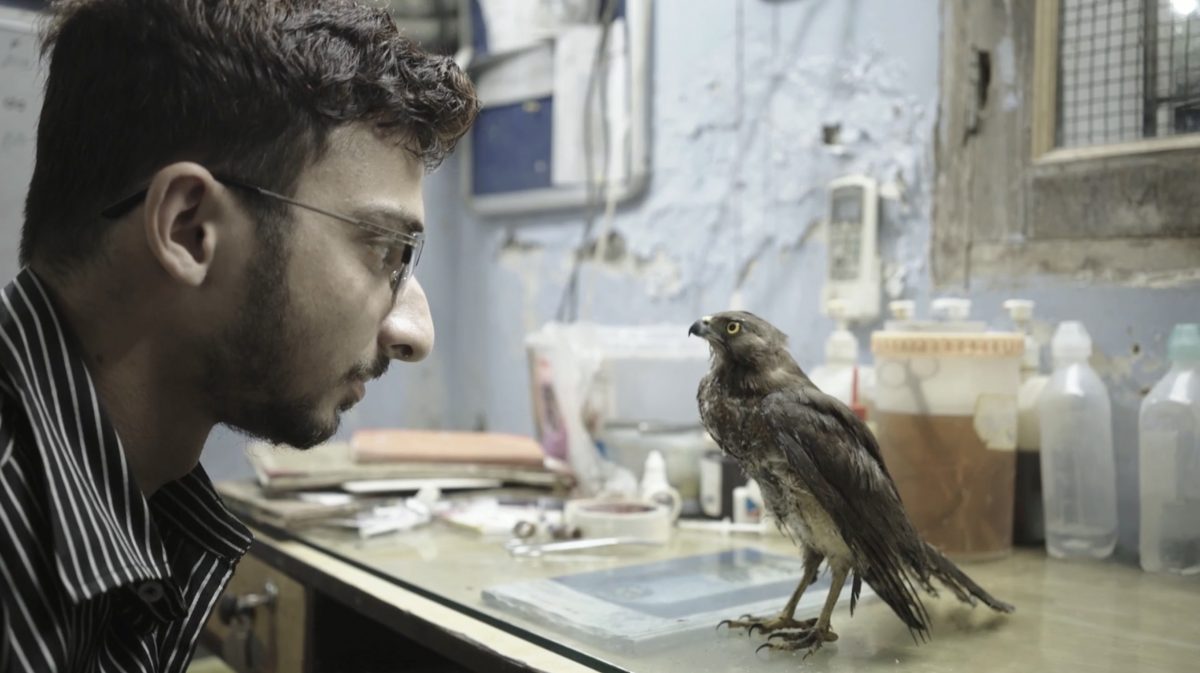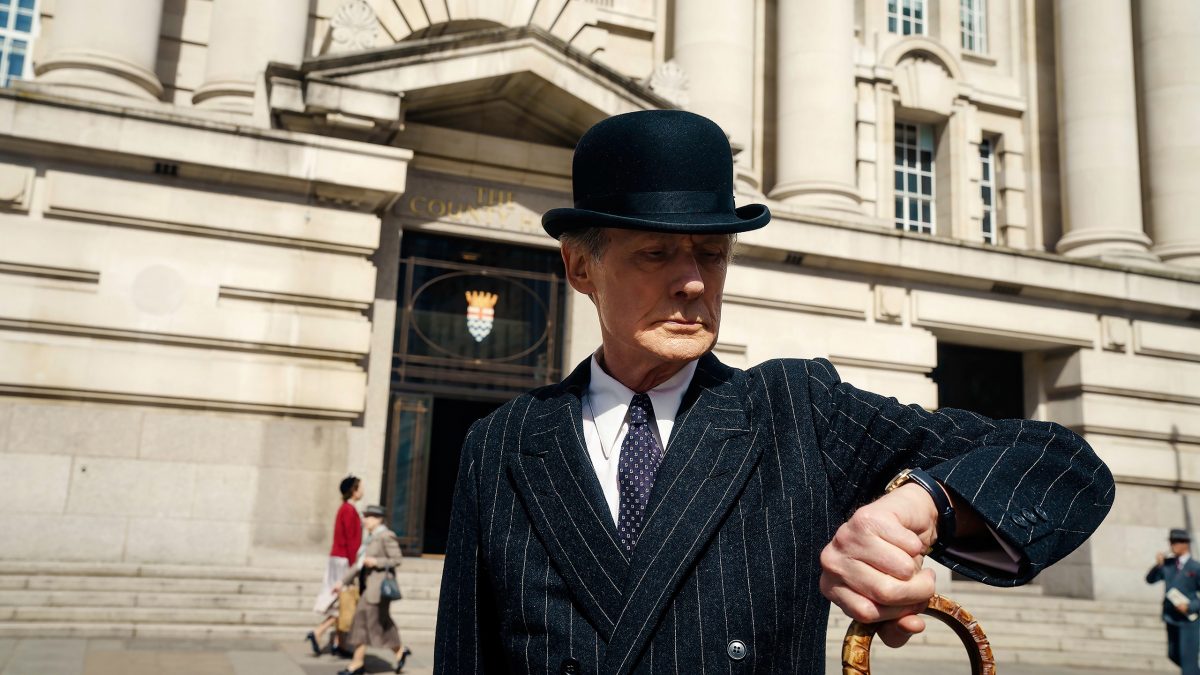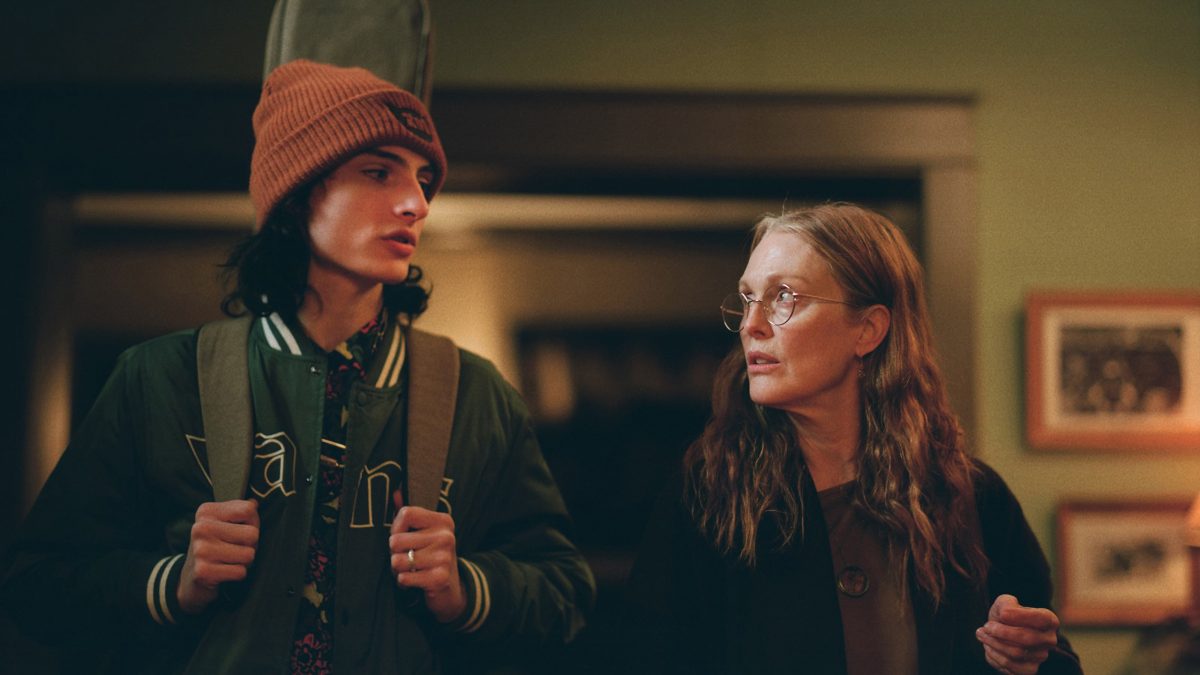This final Sundance Film Festival dispatch explores a quartet of films concerned about ideas of living, legacies and the state of our world. Even as these four films are only a handful of the offerings at this year’s festival, they point towards the larger state of releases this year with some of the more interesting entries coming from outside of the mainstream, and even outside of the typical narrative-features that get most of the post-festival attention.
South Korean-born American filmmaker Kogonada’s “After Yang” will be one of the earliest releases from the 2022 Sundance Film Festival when it premieres for non-festival audiences at the start of March. The science-fiction film, a follow-up to his debut film “Columbus”, is set in the future and concerns the restoration of a “techno sapien” (artificial human). Colin Farrell and Jodie Turner-Smith play Jake and Kira, parents to a young girl of Chinese heritage. They have raised her alongside her techno sapien brother (Yang), also ethnically Chinese, to give her a sense of identity. But when Yang stops working earlier in the film, Jake and Kira find themselves trying to understand the innerworkings of AI life and the ways that artificial intelligence and human intelligence intersect.
It’s an intriguing, if familiar, premise. To its detriment, I saw “After Yang” with memories of Maria Schrader’s excellent 2021 “I’m Your Man” on my mind. It’s an unfair comparison in some respects, but Schrader’s work is easily one of the more thoughtful exploration of AI/human dynamics this decade that the studied seriousness of “After Yang” feels askance in comparison to. In many ways, Koganada’s work is fiercely ambitious. It nods at complications of race, and class and even gender in ways that might make for fruitful discussion. But so much of its discussion points seem like suggestive nods rather than things the film actually feels prepared to examine. It’s acutely keyed into metaphors and symbols, but feels detached from engaging with them beyond the instinctual. There are too many needlingly vague gestures to real-world race relations, but they feel incongruous within the image of “After Yang” and its somewhat fantastical post-racial world, which is excellently communicated in the opening sequences that are the most energetic moments of the story. It’s a challenge familiar for dystopic science-fiction trying to marry our reality with the socio-cultural implications of its imagined world.
On the edges of the main narrative, Sarita Choudhury is giving the film’s most fascinating performance, injecting her typical earnest care into a role of a scientist. It’s another reminder that she’s been woefully underserved by film with not enough major roles to carry her talent. The elegiac and melancholy tone is well measured against Benjamin Loeb’s delicate photography, but I was surprised by how little of the existential concerns here fail to linger after the credits roll. But even if “After Yang” never feels completely virtuosic in its existential entreaties, and retains a mawkishness as to the “meaning” of life, it’s a more confident and meaningful exploration of familiar themes when compared with the “Ikiru” remake, “Living”.
The British remake of “Ikiru”, a respectable adaptation with Bill Nighy, is a frustrating entry. Each frame of this film screams respectability and importance but the actual experience of it is more muted and effete. Directed by Oliver Hermanus, “Living” is set in the 1950s in the bleak industrial ruins of post-war England. When the stoic Mr Williams (played by Bill Nighy)– a veteran civil servant who is at home in this colourless industrial world – is diagnosed with cancer, and given six months to live, he begins to consider the value in actually living his life. Like the original, his last few months are spent embarking on a change in behaviour that hopes to leave a legacy behind he can be proud of. It’s a moving premise. But less impressive as a film.
My ungenerous first thought was that “Living” played like a bad parody of a good Terence Davies movie. And, even though that initial assessment is slightly inexact, it does speak to a weightless hollowness that runs through a film that feels incorrectly titled “Living”. Certainly, the film’s aesthetic control is assured, with a grainy sheen that feels almost as if it was made in the 1950s but the air of respectability that overwhelms the frame cannot make up for the lack of energy that runs throughout “Living”. Injected with the certainty of death, Mr Williams encounters a number of persons (many working class) that will show him the real vitality of the world, but this feels like an exercise in performance rather than anything earnest or true. That muted quality might be read as contemplativeness, but instead feels like an empty exercise in an ending that is assured from the opening sequences. “Living” bears very little difference from “Ikiru”, and then changes that have been made all make for a treaclier entry than the original. “Living” feels unable to announce any personal drive in its own defence. At every frame, this feels perfunctory and effortful rather than natural, or charming, or organic. I didn’t believe a single frame of it, even when its coda seems committed to affirming some sense of the world being a place of change and possibility. What seismic important does “Living” have to offer? Maddeningly little.
A more successful attempt at placing personal concerns amidst the backdrop of an uncaring world is found in Shaunak Sen’s Indian documentary “All That Breathes”. The observational portrait is an account of two Muslim brothers (Nadeem and Saud) in New Delhi who dedicate their time to the rescue of black kites who are falling from the sky in droves, a sign of the increasingly worsening environmental situation in the polluted city. But this is more than just about kites, and nature, or even climate. In a melancholic moment — the film has many — one of the brother muses, “One shouldn’t differentiate between all that breathes.” It’s a sign of the film’s own care and tenderness that this moment doesn’t feel heavy-handed, but instead feels like a gentle and honest distillation of the major themes at work here.
It’s a stirringly modest film which specifically roots itself within a marginal window even as it keeps nodding at the world around it. Rather than depending on the over-explanations of multiple talking-heads, “All That Breathes” retains an observation element that allows the dynamics of this world to be communicated to us in sequences that move the stories of these brothers forward, placing them within the context of the human bigotry that is paralleled with the plight of the birds. As Sen methodically informs us of the stakes here, our initial assessment of the tale becomes more complex: their fates are affected by the Muslim/Hindu rift in India, the contextualisation of the relationship between the birds and their own religion, but also the financial precarity and the desperation that propels their work. The brothers, like us, seem to desperately cling to the idea that there must be more to the world than the malaise we observe. And so, they cleave to the birds as a symbol of a world that must mean something.
The kinds of existential excavation here: their failed attempts to retain funding, the despair as to the future of their country and the world, an impending separation of the two brothers, gives way to bleaker realities for the brothers, who have spent years at their task. And yet the melancholy here never feels at odds with the open earnestness of their commitment to their work offering a welcome counterpoint to more prosaic explorations of the changing world from more mainstream entries at Sundance.
Jesse Eisenberg’s directorial debut, “When You Finish Saving the World,” is one such American film that seems unbale to truly engage with the potential of its premise. The comedy-drama, written and directed by Eisenberg, is about many things but primarily the gap between Evelyn (Julianne Moore), who runs a shelter for domestic abuse victims, and her son teenaged son Ziggy (Finn Wolfhard), who has a successful platform singing folk-rock music to an international fanbase online. Ziggy is moved to explore issues of social justice to impress a girl, and mother and son embark on a way to understand each other. There might be something interesting here if Eisenberg was willing to actually work at performing any kind of fulsome satirical excavation of these characters. Any chance of engagement with the privilege of Ziggy and Evelyn who both find themselves fascinated by less privileged persons that enter their lives is wasted in a film that has none of the ambition or drive of its potential.
Perhaps the shallowness of the film might be read as a meta-commentary on the characters own emptiness, but Eisenberg’s film is too empty to register beyond being frustratingly surface-level with its engagement on any topic of important. It’s not that nothing here is compelling. Ziggy’s thirst for upvotes online, and his awkward attempts to prove his socio-cultural knowledge to the object of his affection feels like a realistic awareness of the dynamics of contemporary teenage-worlds, where performative intelligence is not always part of earnest political interest. Elsewhere Evelyn’s desperate attempts to mother the child of a domestic abuse victim is almost moving for the way Julianne Moore performs the desperation of a mother who is yearning to feel needed. But individual moments, or entire sequences, don’t do enough to pull the conflicting elements of “When You Finish Saving the World” together. Despite some occasionally shrewd observations, Eisenberg doesn’t seem to have much to say and all the potential to really explore the shallowness of white performative awareness is dashed in a film that cannot bear to really critique the characters at its centre. For Eisenberg, the promise of existential critique is felled by blinkered focus on its main characters who are too tedious to really care for.
After Yang begins streaming in March, while “Living,” “All That Breathes” and “When You Finish Saving the World” are set to be released later this year.









